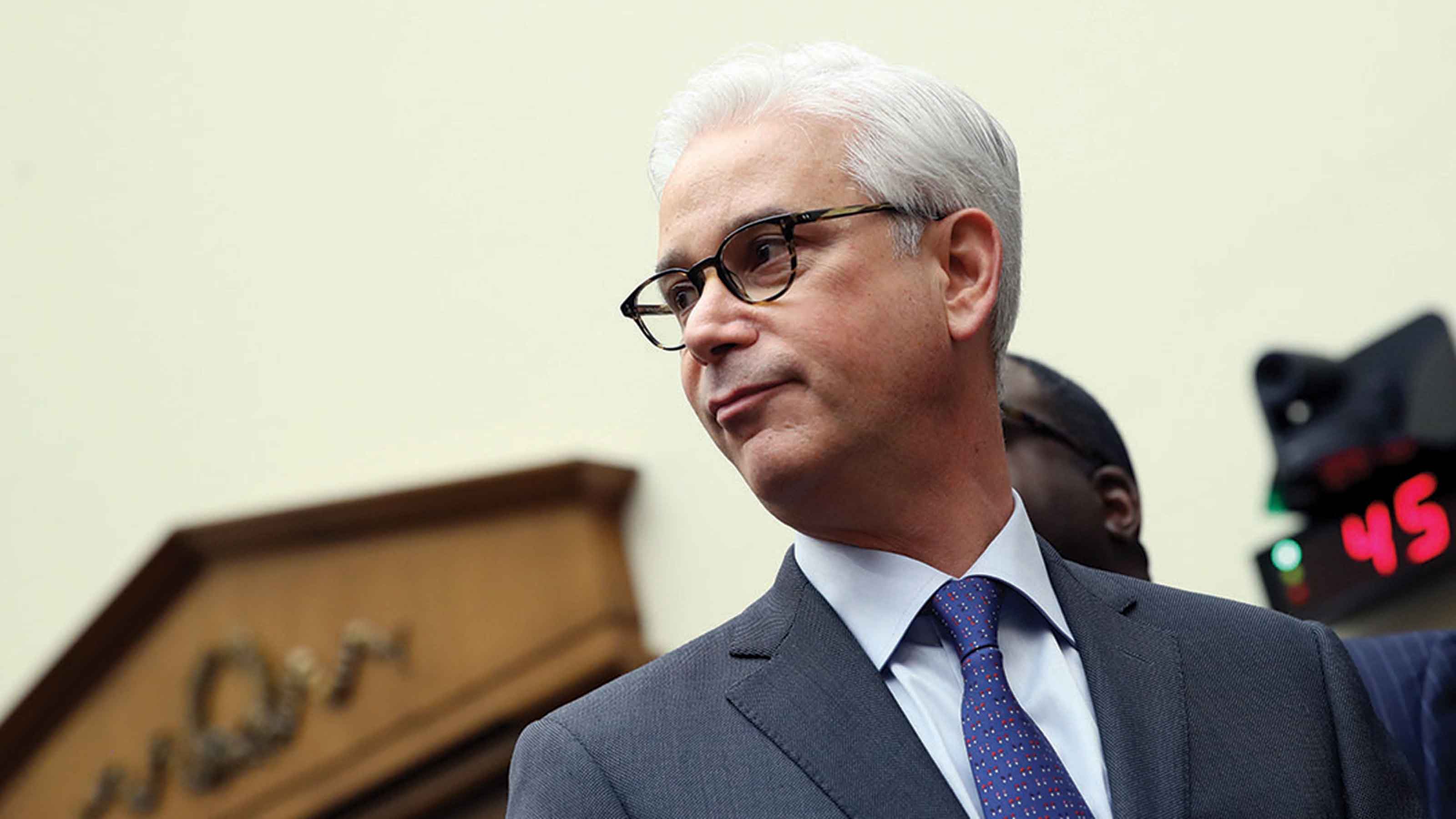Extending the Payroll Tax Cut Is a Cop-out
Shell-shocked consumers aren’t putting the money into the economy, and neither would firms.

Profit and prosper with the best of Kiplinger's advice on investing, taxes, retirement, personal finance and much more. Delivered daily. Enter your email in the box and click Sign Me Up.
You are now subscribed
Your newsletter sign-up was successful
Want to add more newsletters?

Delivered daily
Kiplinger Today
Profit and prosper with the best of Kiplinger's advice on investing, taxes, retirement, personal finance and much more delivered daily. Smart money moves start here.

Sent five days a week
Kiplinger A Step Ahead
Get practical help to make better financial decisions in your everyday life, from spending to savings on top deals.

Delivered daily
Kiplinger Closing Bell
Get today's biggest financial and investing headlines delivered to your inbox every day the U.S. stock market is open.

Sent twice a week
Kiplinger Adviser Intel
Financial pros across the country share best practices and fresh tactics to preserve and grow your wealth.

Delivered weekly
Kiplinger Tax Tips
Trim your federal and state tax bills with practical tax-planning and tax-cutting strategies.

Sent twice a week
Kiplinger Retirement Tips
Your twice-a-week guide to planning and enjoying a financially secure and richly rewarding retirement

Sent bimonthly.
Kiplinger Adviser Angle
Insights for advisers, wealth managers and other financial professionals.

Sent twice a week
Kiplinger Investing Weekly
Your twice-a-week roundup of promising stocks, funds, companies and industries you should consider, ones you should avoid, and why.

Sent weekly for six weeks
Kiplinger Invest for Retirement
Your step-by-step six-part series on how to invest for retirement, from devising a successful strategy to exactly which investments to choose.
It’s an idea bad enough, by today’s standards of leadership, to attract broad bipartisan support: Next week, President Obama is likely to propose another temporary cut in payroll taxes as a way to stimulate the economy.
That’s the way things work now. Good ideas to help the country tend to require sacrifice and also challenge the interests or the orthodoxy of one party. Bad ideas -- those that won’t work and waste money -- have a surface appeal, duck hard choices and are thus irresistible to our political leaders.
It is telling that the debate about Obama’s jobs plan hasn’t been about its content. Instead, like two seventh graders competing for attention, Republicans and the White House bickered over whether the president would deliver his speech Wednesday -- upstaging a Republican presidential debate -- or Thursday, when it might clash with the kickoff of the National Football League season.
From just $107.88 $24.99 for Kiplinger Personal Finance
Become a smarter, better informed investor. Subscribe from just $107.88 $24.99, plus get up to 4 Special Issues

Sign up for Kiplinger’s Free Newsletters
Profit and prosper with the best of expert advice on investing, taxes, retirement, personal finance and more - straight to your e-mail.
Profit and prosper with the best of expert advice - straight to your e-mail.
White House officials have encouraged the idea that a major piece of the jobs plan will be some form of short-term payroll tax cut such as the one enacted last December.
The idea behind cutting individual taxes to stimulate the economy during a downturn is that the money replaces lost income and heads off a drop in consumer spending (70% of economic activity) that could tip the economy into a recession.
But that works only when consumers believe that the downturn will be brief. If you think that the bad times will last for years and that you might even lose your job, you tend to save your extra income. That’s been especially true recently, after a financial crisis that encouraged almost everyone to reduce debt. People saved about 2% of their incomes before the financial crisis; now they’re saving 5%.
We don’t know how much of this year’s payroll tax cut -- reducing the normal tax paid by employees from 6.2% to 4.2% -- was actually spent. But research on past examples of such tax rebates suggests it wasn’t very much. In 2008, $100 billion in onetime rebate checks to taxpayers resulted in about $20 billion in added spending, according to Harvard economist Martin Feldstein, who originally supported the idea.
Other research shows that such onetime rebates are about twice as likely to increase spending as rebates dribbled out through lower withholding in paychecks, the approach for the payroll tax cut. A very rough estimate is that a repeat of the $110-billion payroll rebate might deliver as little as $11 billion in added spending, with the majority used to pay down credit cards and other debt.
Obama and other supporters of the payroll tax cut argued that it wouldn’t worsen the long-term budget deficit because it was only temporary. These same voices now warn that expiration of the tax cut would hit the struggling economy with a tax increase. Republicans claim they will oppose more payroll tax cuts, but they’ll go along in the end.
One option would be to renew the current rebate for workers. Another would be to reduce the corresponding 6.2% payroll tax that employers pay, in keeping with the president’s focus on job creation. Or both could divide a tax cut.
It seems even less likely that employers, rather than workers, would respond in a way that boosted the economy. The idea is that employers would use the tax savings to hire workers or raise pay. But unlike a onetime purchase by a consumer with a little more money this year, hiring a worker and hiking wages is a longer-term proposition for most employers. It’s not practical to hire and train most workers for only a year, or to raise wages one year and cut them the next.
Small business owners report that the overwhelming reason they aren’t hiring is a lack of demand -- high labor costs aren’t at the top of the list. It seems likely that any employer rebate would pad profits or otherwise be saved.
What are the “good” alternatives that leaders won’t fight for? Direct spending by the government to create jobs has proved to be the most efficient form of stimulus. To offset the impact on the deficit, Congress could tackle some really wasteful things, such as unneeded weapons systems, subsidies to wealthy farmers and mortgage interest deductions for third and fourth homes.
Instead of creating jobs, the president seems likely to logroll with Congress over a transportation bill similar to the spending in the 2009 American Recovery and Reinvestment Act, which was plundered by contractors who created very few private sector jobs. And neither party, both of which are busy raising campaign cash, will declare war on the farm lobby, defense contractors or real estate brokers.
It would be easier to holler about these handouts if we weren’t all about to mutely accept our own, in the form of another payroll tax cut that will go to savings or bill collectors but won’t help the economy.
Profit and prosper with the best of Kiplinger's advice on investing, taxes, retirement, personal finance and much more. Delivered daily. Enter your email in the box and click Sign Me Up.

-
 Over 65? Here's What the New $6K 'Senior Deduction' Means for Medicare IRMAA Costs
Over 65? Here's What the New $6K 'Senior Deduction' Means for Medicare IRMAA CostsTax Breaks A new deduction for people over age 65 has some thinking about Medicare premiums and MAGI strategy.
-
 U.S. Congress to End Emergency Tax Bill Over $6,000 Senior Deduction and Tip, Overtime Tax Breaks in D.C.
U.S. Congress to End Emergency Tax Bill Over $6,000 Senior Deduction and Tip, Overtime Tax Breaks in D.C.Tax Law Here's how taxpayers can amend their already-filed income tax returns amid a potentially looming legal battle on Capitol Hill.
-
 5 Investing Rules You Can Steal From Millennials
5 Investing Rules You Can Steal From MillennialsMillennials are reshaping the investing landscape. See how the tech-savvy generation is approaching capital markets – and the strategies you can take from them.
-
 Airbnb Host Tells What It's Like
Airbnb Host Tells What It's LikeBusiness Costs & Regulation This Denver pharmacist began booking her ski condo a few months after the pandemic hit.
-
 Tough Times for a Family Business
Tough Times for a Family BusinessBusiness Costs & Regulation His dry-cleaning operation was rocked by the pandemic, but he is staying optimistic.
-
 IRS Gives Truckers a Tax Break in Response to the Colonial Pipeline Shutdown
IRS Gives Truckers a Tax Break in Response to the Colonial Pipeline ShutdownTax Breaks The tax penalty for using dyed diesel fuel for highway use is temporarily suspended.
-
 Reliving a Harlem Renaissance
Reliving a Harlem RenaissanceBusiness Costs & Regulation After a tough winter, two sisters look forward to reviving their restaurant’s business.
-
 Add a VPN to Surf the Internet Safely
Add a VPN to Surf the Internet SafelyTechnology To help you fight identity theft, consider adding a VPN.
-
 Stephanie Creary: Making the Case for Diversity on Corporate Boards
Stephanie Creary: Making the Case for Diversity on Corporate BoardsBusiness Costs & Regulation Adding underrepresented voices can improve a company’s bottom line.
-
 How We Lose When We Overlook Black Talent
How We Lose When We Overlook Black TalentBusiness Executives Comments from Wells Fargo CEO Charles Scharf (pictured) reflect a culture that tramples on clients’ trust and limits opportunities for people of color.
-
 Retirees, Create An Emergency Fund for Rental Property
Retirees, Create An Emergency Fund for Rental PropertyBusiness Costs & Regulation Build a cushion to protect your income from an unforeseen crisis.